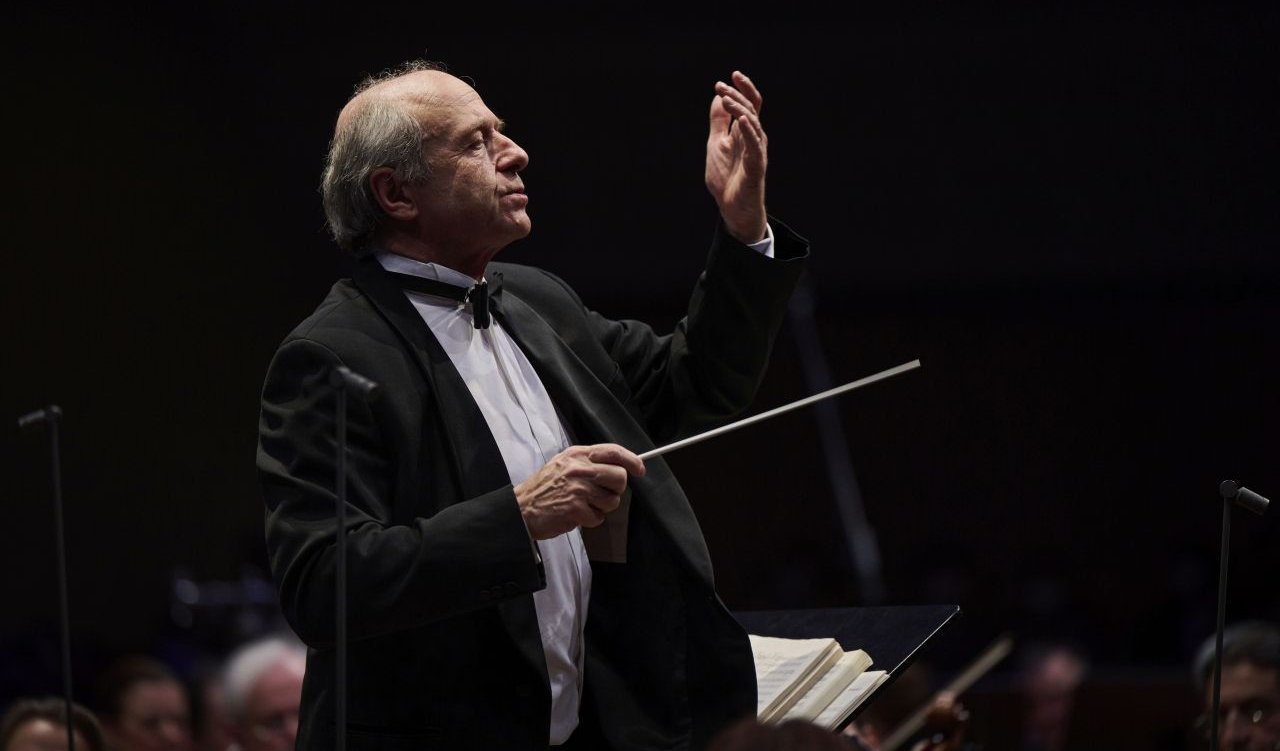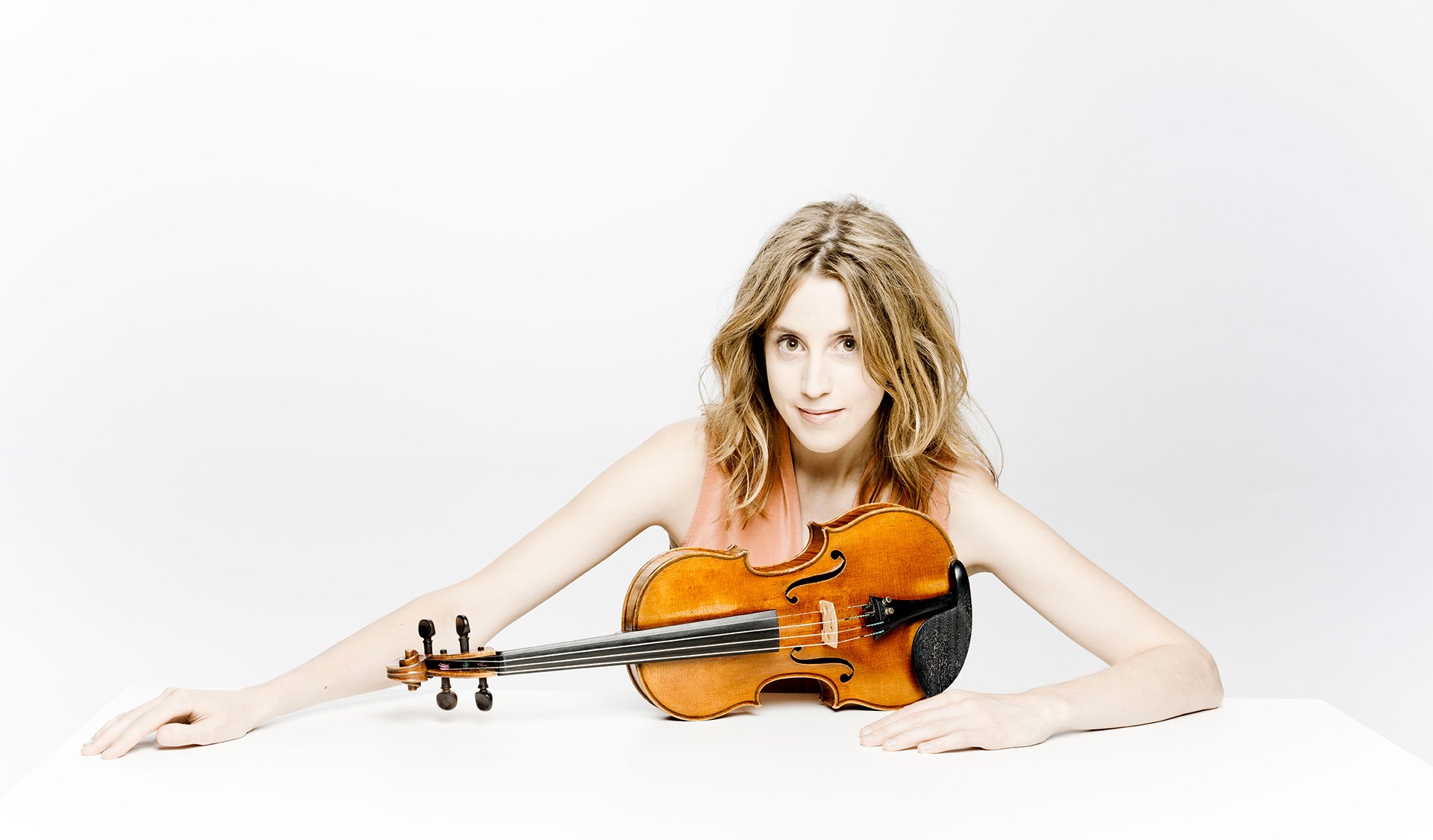

Program
Claudio Monteverdibio:
A selection from Scherzi musicali
CHANGE IN PROGRAM: At the request of the soloist, instead of Bartók Violin concerto No. 2, Vilde Frang will play Violin concerto No. 1 at the concert
Béla Bartókbio:
Violin Concerto No. 1, Sz. 36, BB 48a
INTERVAL
Franz Schubertbio:
Symphony No. 9 in C major (“The Great”), D. 944
Featuring
Other information
Season tickets
- DORÁTI
The event is about 2.5 hours long.
About the event
The charming Vilde Frang will be the soloist of the Festival Orchestra yet again! “Frang has the knack of breathing life into every note” – wrote the critic of BBC Music Magazine about the musicianship of the Norwegian violinist. This time she is to breathe life into Bartók’s score, his Violin Concerto No. 1. To begin the colorful program, a few of the vocal works by Monteverdi, accompanied by an ensemble of instruments, will be performed. The composer reconsidered the relationship between music and words in a revolutionary way. Following Baroque musical jokes and 20th century sounds, the second part of the concert features Schubert’s most significant instrumental work, a milestone of romanticism, the last symphony he finished.
1607 was a significant turning point in Monteverdi’s life, hence in the history of music as well. His groundbreaking opera, L’Orfeo, was premiered and the first volume of Scherzi musicali was published. Written for three voice parts and instrumental continuo, the characteristic rhythms and atmosphere of the eighteen short pieces evoke the pastoral surroundings of the 5th book of Madrigals, published two years earlier. The Foreword to the Scherzi musicali collection carries on the debate caused by the Book of Madrigals and champions seconda pratica, Monteverdi’s new style of composition, summing it up like this: “Make the words the mistress of the harmony and not the servant.” The second volume of vocal compositions attempting to express the words was published in 1632.
Bartók’s Violin Concerto No. 1 is a confession, the musical imprint of unrequited love and the result of processing an experience. The young composer was 27 years old in 1908 when he sent Stefi Geyer, the woman he was in love with, the concerto about her. She was given her own five-note leitmotif or musical motto in the piece, and the two movements show her two faces. The composition breaks with concerto traditions in more ways than one. The fact that the piece has two movements is unconventional, as well as Bartók choosing variations instead of the sonata form in the first movement. After the portrait of the idealized, celestial and inward Stefi, in the second movement, we can hear the cheerful, witty and amusing Stefi. The work, published only half a century later in 1958, has since become a favorite of violinists.
The serial number of “The Great” symphony in C major is somewhat unclear. After his first six, Schubert started working on several symphonies but finished only one of them – the work we know today as his Ninth. It lasts one hour, or as Schumann put it, it is of “heavenly length”, breaking the limits set by classic standards; musicians and the public both needed a long time to get to grips with this grandiose work of art. The borderlines between the regularly shaped parts are blurred with amazing transitory passages. In the symphony, Schubert treats his instruments as human voices or as a choir, from the French horn’s motto in the introduction; to the march in a minor key in the slow movement burnishing into a breathtaking major key; to the tutti of the wind instruments in the Scherzo; to the citation of Ode to Joy in the gigantic Finale.
Did you know? The first volume of Monteverdi's collection was published in 1607, the second in 1632; the premiere of Schubert's Symphony No 9 took place in Leipzig on 21 March 1839, conducted by Felix Mendelssohn. The Festival Orchestra last performed the Symphony in Paris on 19 March 2012 (conductor: Iván Fischer). This is the first time they will perform Monteverdi's works.
Contemporary events In 1607, the Italian painter Caravaggio painted David with the Head of Goliath / In 1607, the English playwright Ben Johnson's play Volpone (premiered the previous year) was published / On 27 September 1939, the troops of Nazi Germany marched into Warsaw, and the Soviet-German border treaty was signed the following day / Mexican artist Frida Kahlo painted The Two Fridas in 1939 / On 21 August 1939, Benjamin Britten's Variations on a Theme of Frank Bridge was premiered in New York / Sigmund Freud published his book Moses and Monotheism in 1939 / on 3 November 1839, the First Opium War broke out between China and Britain / French writer Stendhal's novel The Charterhouse of Parma was published in 1839 / on 24 November 1839, Héctor Berlioz's Symphonie dramatique Romeo and Juliet was performed in Paris
